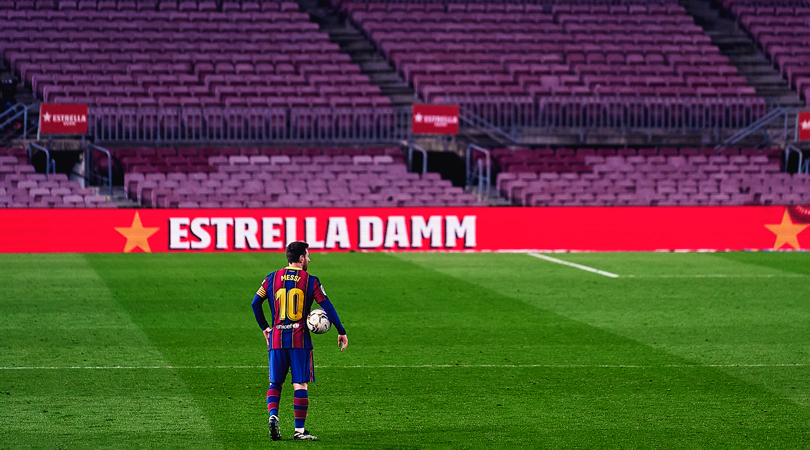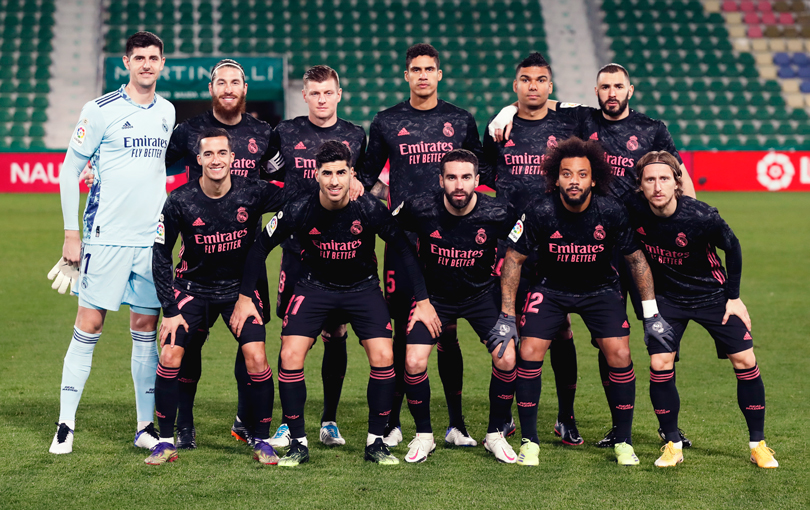Has the quality of La Liga dropped? Why Spanish football is enduring a transitional phase
La Liga ruled European competition through the 2010s: so why do all their teams look so much weaker these days?

When historians look back at when Spanish football peaked, they'll probably stab a pin between 2009 and 2011. Vicente Del Bosque led the nation to its first World Cup victory in South Africa in 2010, sandwiched between Pep Guardiola's two Barcelona Champions League titles. Really, it was just the start of a golden decade.
In 2012, Spain retained the Euros as Atletico Madrid beat Athletic Bilbao in the Europa League final, while Guardiola and Jose Mourinho (then at Real Madrid) locked horns in the heat of La Liga. Lionel Messi and Cristiano Ronaldo struck 133 goals in all competitions between them in 2011/12; as the decade wore on, the pair loomed large over the continent - but they weren't the only ones.
The Ballon d'Or was won by a La Liga player every season during the 2010s and only five times out of 30 was a podium spot not filled by a player in the Spanish league. La Liga sides won the Champions League six times and the Europa League six times. Twice, there was an all-Madrid final in the Champions League.
As the decade reached the halfway point in August 2015, La Liga became the first league to supply five clubs to the Champions League group stage. Pep Guardiola, the man at the start of this golden age, was knocked out by Spanish sides from Europe every time he took Bayern Munich into the competition.

Endless growth, however, is unsustainable.
2020 saw the first Champions League semi-finals since 2007 without a Spanish club, while only one club won their group in this season's tournament in the autumn. That was Real Madrid, who lost twice and nearly fell to the Europa League. Since then, Real Sociedad - one of the country's better sides - have been smashed by Manchester United. Barca were battered 4-1 at home to Paris Saint-Germain. League leaders Atletico Madrid couldn't muster a shot against Chelsea while Sevilla were beaten by a Borussia Dortmund side facing a season not qualifying for Europe.
The demise of an entire ecosystem can largely be traced back to the seismic figures of Messi and Ronaldo. Had Lionel Messi not have been overshadowing Neymar, he'd never have had to leave and break up MSN. Without that first domino toppling, Barca wouldn't have panic-bought Ousmane Dembele, Antoine Griezmann and Philippe Coutinho, each of which have looked like ghosts of their former selves at the Camp Nou.
Get FourFourTwo Newsletter
The best features, fun and footballing quizzes, straight to your inbox every week.
ANALYSIS Can we ever love the Europa League? 8 reforms to make the competition more exciting
Cristiano Ronaldo departing Madrid marked the end of an era. Real haven't conquered Europe without him and don't look likely to any time soon, as the squad slowly ticks towards a full-scale restructure. And it's not just Leo and CR7: Sergio Ramos and Gerard Pique are both 34. Modric is 36, Suarez 34, Busquets 32, Marcelo 32, Alba 31, Kroos 31. And there's no one of peak age to replace them.
According to Transfermarkt, the three most valuable players in the league aged between 23 and 30 are Jan Oblak, Thibault Courtois and Marc-Andre Ter Stegen. All goalkeepers. The two most valuable assets of any age are Joao Felix (21) and Ansu Fati (18), who have 77 La Liga appearances between them. Rebuilding dynasties either takes time or money - and the big two apparently aren't flushed with cash.

We've been there with the Premier League - but English football has been defined by its managers as much as its players. Sir Alex Ferguson retiring left a void: no English side reached a Champions League final between 2013 and 2017, as the likes of Manchester City, Liverpool and Chelsea all rebuilt themselves into the sides that have competed for the top prizes in recent years.
Really, Leicester City won the title in an absolute vacuum between other clubs' dynasties - and it looks like Atletico could do the same thing now. Bayern and PSG have ascended to become the European superpowers they've long looked capable of becoming, with the English sides supplementing them in terms of quality. The Spanish sides pale in comparison this season in Europe, when you contrast them against the very strongest.
European Football moves in tides, largely depending on where the money is. The Premier League brought the best coaches in the world to English shores, while the Bundesliga began investing its money more wisely. That reflects in the standard of the players.
La Liga will no doubt rise again. El Clasico will never not be attractive to some players. The Messi/Ronaldo era has already ended in Spain, though; the rebuilding process is just beginning.
While you're here, subscribe to FourFourTwo today and save 37%. All the exclusive interviews, long reads, quizzes and more but with more than a third-off normal price.
NOW READ
FOOTBALL SHIRTS "Football shirts are a part of life" - FFT chats to Adidas football designers about how they bring their ideas to reality
EUROPA LEAGUE 8 reforms to make the competition more exciting
GUIDE Premier League live stream best VPN: how to watch every game from anywhere in the world

Mark White has been at on FourFourTwo since joining in January 2020, first as a staff writer before becoming content editor in 2023. An encyclopedia of football shirts and boots knowledge – both past and present – Mark has also represented FFT at both FA Cup and League Cup finals (though didn't receive a winners' medal on either occasion) and has written pieces for the mag ranging on subjects from Bobby Robson's season at Barcelona to Robinho's career. He has written cover features for the mag on Mikel Arteta and Martin Odegaard, and is assisted by his cat, Rosie, who has interned for the brand since lockdown.
